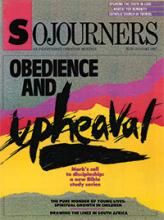Like salt in a wound, news of the shipment of official U.S. aid to the Nicaraguan contras has been painful for many of us. Knowing that the money and guns are flowing--the beginning of the $100 million in aid approved last June--has made us even more acutely aware of our limited capacity to help our Nicaraguan brothers and sisters by influencing U.S. policy, and of the increased pain and suffering those dollars are sure to bring.
The $100 million in contra aid represents a fundamental, qualitative difference in the United States' war against the people of Nicaragua. No longer limited to covert funding and guidance of a proxy army, the Reagan administration plans to supplement its monetary aid with the full array of U.S. military, intelligence, and administrative resources.
The contra war is deepening, and U.S. involvement in it is escalating to new, yet frighteningly familiar, levels. In the words of Republican Sen. David F. Durenberger of Minnesota, hardly a strong opponent of U.S. policy in Nicaragua, "Regardless of what anybody says, this is Vietnam."
Some of us have been sounding that warning for a long, long time. And a New York Times/CBS News poll conducted last April found that 62 percent of the respondents said they "fear the United States will get involved in Nicaragua as it did in Vietnam." The signposts of intensive, long-term U.S. commitment to the Nicaraguan war are more numerous and evident than ever.
Read the Full Article

